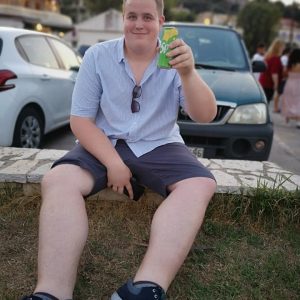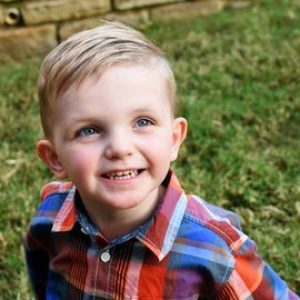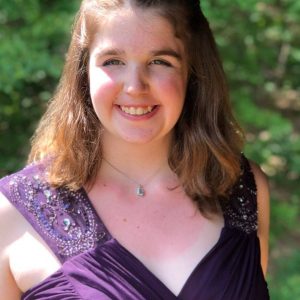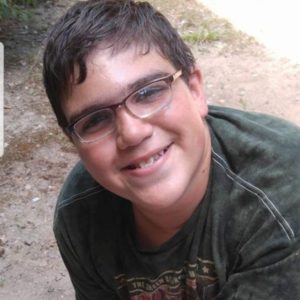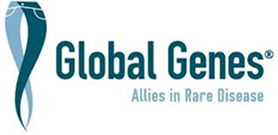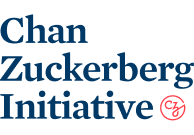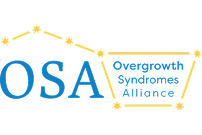Rhydian my son was born 3 weeks early by emergency C-section due to me having pre-eclampsia. He weighed 7-and-a-half lbs (3390 g) and his head circumference was 36 cm. He spent the first week in an incubator due to jaundice.
Problems became apparent when all milestones were delayed. He was a ‘floppy’ baby, late sitting up, standing, walking, and he had very few words at age 4. During one check up he tested as hearing impaired, he was quite deaf, so had an operation to have grommets inserted in his ears. At that time, they thought this might explain his delay. He was a jolly and happy baby but I dreaded every visit to the health visitor for his check ups almost from the start. I remember the check list questions—was he looking at me when I was talking, did his head turn to me, was he reaching out to grab things, could he pick something up, was he trying to sit up…endless questions and my answers were usually always no, no, no. I worked myself up when going to the next one hoping things would be better, but they rarely were.
He started infant school, but it was obvious he needed extra help. My neighbour worked for the education authority and said he needed a Statement of Educational Needs. I had no idea what that was. With her help and after a lot of form filling and assessments we got him into a speech and language unit in a Welsh school 20 miles away. At 4 years old he would go in a taxi to school with an escort accompanying him. I felt like such a failure as a mother. In his new unit there were 8 children, a specialist teacher, and 2 or 3 helpers. They pushed him hard but he thrived there. He had words to learn every week and a spelling test every Friday. It was hard work at the time I remember, but I thank my lucky stars every day that he went to that specialist unit.
Growing up Rhydian had balance and co-ordination problems, fine and gross motor issues, dyspraxia, dystonia, hypotonia (low muscle tone), joint hyper-laxity, gross/fine motor skills and receptive and expressive language issues, social skills difficulties, and lack of awareness of danger. Things like remembering, putting words in the right order, sequencing, and concentrating were huge issues for him. He suffered with global developmental delay, obsessive and ritualistic behaviour, and he stuttered badly when speaking. We had challenging behaviour issues too. As an older child he’d often have a tantrum and I’d get so embarrassed when out and about as he was this big strapping boy acting like a small child. The looks and murmurs or nasty comments or laughter was heartbreaking. As an older teenager he was diagnosed with ADD, and a mental age of a 7-year-old.
Not having a name to explain his condition was terrible. When I spoke to my GP and explained what he was like and kept asking for help, saying there must be something somebody could do, they were hopeless. No one could tell me why he was so slow and different compared to other children. I longed for the day that I could put a name for his condition on a form, that I wouldn’t have to write pages of examples of what he was like when I was meeting someone new and explaining why I needed help.
I had to fight for everything and often made my own referral. He ended up having speech therapy, physio, occupational therapy, rebound therapy (jumping and exercising on a trampoline), and music therapy.
We ended up with a wonderful paediatrician who arranged genetic testing. They tested him for everything they could as far as the science allowed back then. I’d have a phone call every few months to say they’d discovered something new and wanted more samples to test us all again, but it would always come back negative. They told me he was ‘unique’ and would probably never get a diagnosis. I know that Rhydian’s samples were one of the first sent to a researcher in London, Dr Rahman. I have a letter from May 2002 saying she was looking into increased growth in children and very interested in him as he “did not resemble any of the recognisable patterns we see with overgrowth syndromes. Therefore his situation is somewhat unique.” I consented to the study and we ended up sending numerous samples to be tested over the next 12 years. When I spoke to Dr Tatton-Brown in 2017 I asked if she was aware of Rhydian all those years ago and she said yes, she’d been very aware of him, working on his various samples for years. I asked why he wasn’t in the first batch of results and she said it was because they hadn’t had a consent form back from the hospital! His TBRS patient number is the the lowest, however, a fact I’m strangely proud of.
When the time came for Rhydian to go to Secondary school, there was nowhere locally he could go. They offered to send us to another out of county school, or a special school for children with profound disabilities (which was out of the question to us as he learned by copying behaviour), or an English language school. At this time, he mostly spoke Welsh with poor English, and had no friends locally. My point was if he was going to grow up and live in Llanelli, he had to go to school there to know the people and surroundings, and if our first language was Welsh, he should continue to be taught in Welsh, not start over again in a different language. I had a meeting with the Director of Education and took 3 local MP’s (Members of Parliament) with me along with a very supportive parent who was in a similar situation to us. We battled for 3 years almost to get provision for him in our local school. Those were without doubt the hardest and worst 3 years of my life. It almost broke us as a family.
I’m not brilliant at remembering exact details and timescales, but I’ll never forget the years of worry, anxiety, anger, helplessness, hopelessness, and guilt I felt that somehow it was my fault he had all these difficulties. Eventually, on one momentous day, I got a letter to say it had all been approved and they would provide everything we had asked for! Another family had recently taken the Education dept. to court and won, so I think that helped our case. He had his own one-to-one teacher in our local school and a detailed personalised curriculum with weekly swimming and trips out to the community to learn life skills included in the Statement. The school turned a sixth form common room into a classroom for him and he enjoyed every single day he was there until he left at 19. He would stay in mainstream for registration, physical education, cooking, woodwork, etc., then withdraw into his own classroom for most other lessons. It was a wonderful setup. All his skills improved during his time there. He even sat exams and passed quite a few that were based on life skills through coursework.
As the years went on, more children with additional needs shared the classroom but they had their own support. The teacher was officially Rhydian’s own until the day he left school. The headmaster thanked me when Rhydian left for sending him to the school, not just for Rhydian’s own sake, but for all the other children who got to benefit from him being there, that befriended him and would turn out to be better people for knowing him. Setting up that facility for him and never
giving up through the worst of times is still my proudest achievement. It remains in place to this day.
Along the way Rhydian also had asthma, a tonsillectomy, and ingrown toenails surgery. His skin tone is totally different to rest of the family. He is very pale and has lots and lots of moles all over his body. He also has a very high pain threshold—not always a good thing as things can get really bad for him before he notices and tells me and by then it’s usually quite severe. The past few years we’ve had lots of eye problems too. After a few years of constant steroid drops and different diagnoses, the consultant settled on Thygeson’s keratitis, which we treat for a few months, then again when it recurs.
When we had our last appointment with the paediatrician she told me we should all be extremely proud of Rhydian. He was working at 100% of his ability, while we work at about 65%. She confided that she never thought he would be capable of so much when she saw him those first few years. He speaks two languages, Welsh and English, and reads and writes well.
He went away to college for people with disabilities for 3 years, to learn life skills and independence in the hope that he would come back to an assisted living place, but after visiting 3 places, one where 2 boys wouldn’t leave him in the lounge to watch tv, he begged to stay at home with us, where he remains. During his time away from us, there were numerous instances of challenging behaviour. He picked a bench up once in frustration and upended it. Another time he put his fist through a window and broke the glass. They encouraged him to be independent and he was left to get on with it with not enough structure in my opinion. I believe that’s what brought those issues on. He also doesn’t like any late changes to arrangements. You can’t spring anything on him short notice as it stresses him out. He starts rubbing his head quite aggressively when he gets anxious or when he doesn’t know how to react in a certain situation. He also does it when he can’t find the words to express what’s going or explain his feelings. Rhydian is happier, more relaxed, and contented with guidelines, a timescale, and a firm plan.
It was only in 2014 when Rhydian was 22 that I got a phone call out of the blue from the genetics team to say they’d matched Rhydian up with a couple of others and it was genetic mutation, DNMT3A overgrowth disorder, later to be named TBRS. I broke down. I couldn’t stop crying. I felt like a weight had been lifted. All the years of guilt, and the burden of everything being my fault, I can’t explain the sense of relief I felt. I’d had 20 years of feeling like I was banging my head against a wall asking for help, but without a firm diagnosis no one was listening. After I hung up the phone, I searched dnmt3a and found the Facebook group…and the rest is history.
He is 28 now. I would class his learning disability as moderate. We still have food issues, as he would eat non-stop given the chance. He eats healthily at home but it’s a daily battle. Now that he’s older and more independent with his own money, it’s even more difficult to keep track of his food intake. He will spend every penny he has on some kind of food. He still has problems turn-taking in conversation and constantly interrupts. He’s very immature and easily led astray. If he does the slightest thing wrong, he worries a lot about it and he’s always extremely sorry and eager to please afterwards. He loves watching cartoons and Disney films and watches them on repeat. He prefers the company of younger children, which is difficult sometimes, especially due to his size. He’s 6’6″ and weighs 30 stone (190 kg). On holiday especially people see an adult around children and it’s led to some strange looks until we explain his difficulties, they get to know him, and then he can’t get out of the pool as all the kids want him to play with them. Children are drawn to him.
He suffers with his feet, and walks with a limp, which has improved by wearing orthotics in his shoes. He wears a heel lift in one shoe, and specialist insoles in both. His limp is due to his scoliosis (curvature of the spine). One leg is a little longer than the other because of it, also his legs tend to rub together and get very sore regularly. We have a daily programme from the physio to follow, as we noticed as he’s getting older his joints are stiffening up. His feet are very wide and fleshy and we are waiting for a CT scan for his ankles as the orthopaedic consultant thinks his bones have fused. It’s the only pain he ever complains about. I find buying shoes that fit him very difficult. Recently, as more people are being diagnosed with TBRS, our genetics team have requested a brain CT scan, which was clear, and an ECG, which picked up a mild heart issue, mitral valve regurgitation. Also, a scan picked up his enlarged organs, spleen and liver specifically, which the doctors worried about initially, but after testing, they’ve put it down to his overgrowth condition. The consultant told me, large body, large organs basically. He does have fatty liver and raised liver readings but we have a yearly fibroscan and regular bloods so they are keeping an eye on it. My local GP now is wonderful and very supportive. Getting a diagnosis has made a huge difference. Rhydian developed a rash a few weeks ago, which I was worried about due to the leukaemia link, but she reassured me and immediately tested all his bloods, which thankfully were fine.
He’s grown up into a wonderful young man and I have to say that everyone who knows him, loves him. He is the gentlest, kindest, most helpful person I know. He’s a complete joy! He has lots and lots of friends and a very active social life.
He attends a day centre 3 days a week and spends one day on work placement with MENCAP. In the evenings and weekends he plays rugby for a local disability team, attends weekly cinema club, and goes to two different disability social groups. He also has a lovely girlfriend who he meets for two hours, once or twice a week at one of the groups, though they FaceTime each other every day. They have a great relationship and it’s enough of a commitment that suits them both perfectly. It will be their 4-year anniversary shortly. He enjoys golf, snooker, and darts and (on a good day when he’s concentrating) plays them well. Rhydian supports two football and the Scarlets rugby team and he HAS to wear the right jersey or hat or scarf, or there is hell to pay! He loves to sing too, always first up for karaoke! He also enjoys days out and weekends away with us and our friends socially. His drink of choice at the moment is a pint of Guinness and black!
We are very blessed, and I can’t tell you what a difference it’s made finding our group on Facebook. For 22 years I felt isolated and alone. Now I feel we have family all over the world.
Written by Joanne, Rhydian’s mum.
Update 2025 – age 32
Three years ago, Rhydian had to give up playing rugby due to his foot/ankle problems. An MRI scan showed multiple issues including arthritis, bone spurs, tendon damage and total rupture of ligaments. This made walking painful and difficult. I had to tape his feet up every other day to support his ankle and foot. The only thing they could do to help was surgery. However, as there were so many separate issues they didn’t really know where to start. Whatever they fixed might not be what was causing him the problems. All the procedures were complicated with a long and intense recovery period. They decided not to attempt any surgery in case it made his mobility worse. They will only do surgery when his mobility goes.
Rhydian has been diagnosed with neuropathy, which is nerve damage that causes pain, tingling, numbness and weakness. He has it in his upper and lower body. Under the Neurologist, he had nerve induction tests and it turns out he has no feeling in one leg and minimal feeling in the other. The Dr. we saw said something like, “no wonder, look at the size of his legs.” The consultant was dismissive, had no empathy or any interest in researching TBRS and overgrowth. Niether did he offer us any advice or a follow up appointment. I broker my heart driving home from the hospital trying not to show Rhydian how upset and angry I was.
In 2024 he had a heart contrast MRI as requested by our genetics team in Cardiff. This showed he’s on the cusp of mid-range heart failure with left ventricular dysfunction. The Cardiologist has put him on Candesartan 32 mg and Dapagliflozine to prevent it getting worse. However, he has to have regular renal function tests due to the side effects. Due to these heart issues he also get very breathless, which has a knock-on effect on his mobility. He needs to exercise to stay mobile but exercise makes him breathless so he can’t do too much. Unfortunately Rhydian is slowing down and everything takes much more effort now. He has a physiotherapist calling in the house twice a week to help him follow a tailored exercise programme. He also has weekly physio sessions in the pool. which he finds easier as the water supports his body and he can do more.
The heart MRI also picked up a cyst on his spleen and nerve sheath tumor on his ribs. He had a CT on the spleen, and they are going to monitor it for now. He had a separate MRI for the tumor and unbelievably I am still waiting for the results. The DNMT3A mutation that causes TBRS is associated with an increased risk of cancer so this has been and continues to be a very stressful time for us all. Rhydian doesn’t understand the seriousness of what is going on, which I am grateful for as he is a real worrier (and I am worried enough for all of us.)
It is vital we get more information out to doctors about TBRS. No medical professional we see knows anything about it. I have to tell them everything. It’s a full time job keeping track of all his appointments and trying to link all the information together. Some illnesses/syndromes affect one or two systems in the body. TBRS affects everything. We see physios, occupational therapists, podiatry, endocrinology, hepatology team for his liver, hematology for his spleen, cardiology, gastro, neurology…… they all look at just their own specialty. No one is looking at the whole picture and how they are all linked to TBRS. I am left to join all the dots with all the various reports and piece it all together like a jigsaw. We also deal with learning disability team, social workers & care providers. There is always an appointment, a meeting, a report that needs doing or results that need chasing. It is constant and exhausting and completely overwhelming.
Despite everything, Rhydian remains happy, and his personality is a joy. He no longer has time for a girlfriend and his social calendar is busier than ever with his newest passion, being VP for the Llanelli Wanderers rugby team!

